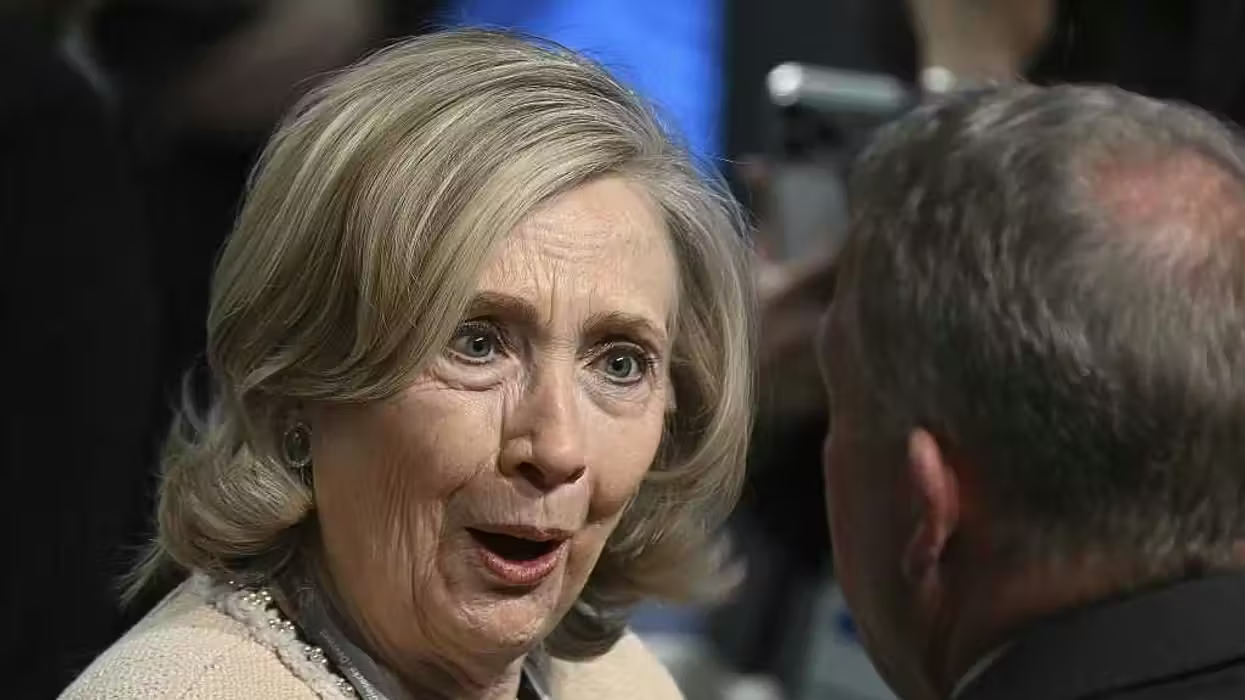The Obama administration is considering allowing some national parks to be maintained by states during the partial government shutdown, but is still withholding information from Congress and the public about the cost of closing so many open-air monuments and parks.
“It would appear logically that the cost of barriers and security could cost more than simply leaving open,” House Natural Resources Committee Chairman Doc Hastings (R-Wash.) told TheBlaze. “We’ve asked the National Park Service and unfortunately we haven’t gotten answers.”
 The main entrance to Grand Canyon National Park remains closed to visitors on Thursday Oct. 10, 2013, in Grand Canyon, Ariz. Under pressure from several governors, the Obama administration said Thursday it will allow some shuttered national parks to reopen as long as states use their own money to pay for park operations. (AP)
The main entrance to Grand Canyon National Park remains closed to visitors on Thursday Oct. 10, 2013, in Grand Canyon, Ariz. Under pressure from several governors, the Obama administration said Thursday it will allow some shuttered national parks to reopen as long as states use their own money to pay for park operations. (AP)
The Natural Resources Committee and House Oversight and Government Reform Committee will hold a joint investigative hearing Wednesday on why 401 national parks and monuments were closed across the country during the shutdown.
“The whole shutdown is a desire by the Obama administration to extend as much pain as possible on the general public to make a point,” Hastings said. "In the 1995-96 shutdown, none of the open-air monuments were shut down.”
TheBlaze asked both the Department of the Interior and the Office of Management and Budget for a comparison on how much it costs to close an open-air monument or national park – with security barriers and personnel-- as opposed to the cost of leaving it open.
On Oct. 2, the second day of the partial government shutdown, Hastings asked in a letter to National Parks Service Director Jonathan Jarvis why public access to the World War II Memorial, the Lincoln Memorial and other sites on the National Mall were barricaded.
More recently, there was news that scenic overviews, including overlooking Mount Rushmore in South Dakota, were blocked.
“It’s ridiculous and the American people get that,” Hastings told TheBlaze. “How expensive is it to close an overview?”
The Interior Department announced they were in early stage talks with the states of Arizona, Colorado, Utah and South Dakota.
Hastings said he’s heartened that the Obama administration is considering working with states, but said at this point he feels like they're “making things up as they go along.”
Some parks are privately funded through nonprofit foundations but sit on federal property -- essentially making Uncle Sam a landlord and forced to close during the shutdown. Among them are the Claude More Colonial Farms in McLean, Va.; the Oregon Inlet Fishing Center and Avon Pier in Cape Hatteras, N.C.; the Pisgah Inn in Brevard, N.C.; Mt. Vernon in Alexandria, Va.; Glen Echo Park in Montgomery County, Md.; and City Tavern in Philadelphia.
Last week, 23 Democrats joined the House Republican majority in voting to keep the national parks open, but the Democrat-controlled Senate would not allow the bill to come to the floor.
Rep. Darrell Issa (R-Calif.) also said he’s glad the administration seems to be dropping its “rigid opposition” to reopening the parks. But the House Oversight Committee chairman said he still wants answers.
“The committee is concerned that the requirement to ‘fully fund National Park Service personnel’ is an arbitrary and costly burden forced on these governors to, once again, maximize the political pain of the National Park Service’s own decisions,” Issa said in a statement. “Next week, we will seek answers from the National Park Service on their closure decisions, the barricading of open-air memorials and public sites, the shuttering of private businesses, and the haphazard and uneven way they have reopened sites they were supposedly ‘forced’ to close.”
--
[related]

 The main entrance to Grand Canyon National Park remains closed to visitors on Thursday Oct. 10, 2013, in Grand Canyon, Ariz. Under pressure from several governors, the Obama administration said Thursday it will allow some shuttered national parks to reopen as long as states use their own money to pay for park operations. (AP)
The main entrance to Grand Canyon National Park remains closed to visitors on Thursday Oct. 10, 2013, in Grand Canyon, Ariz. Under pressure from several governors, the Obama administration said Thursday it will allow some shuttered national parks to reopen as long as states use their own money to pay for park operations. (AP)






